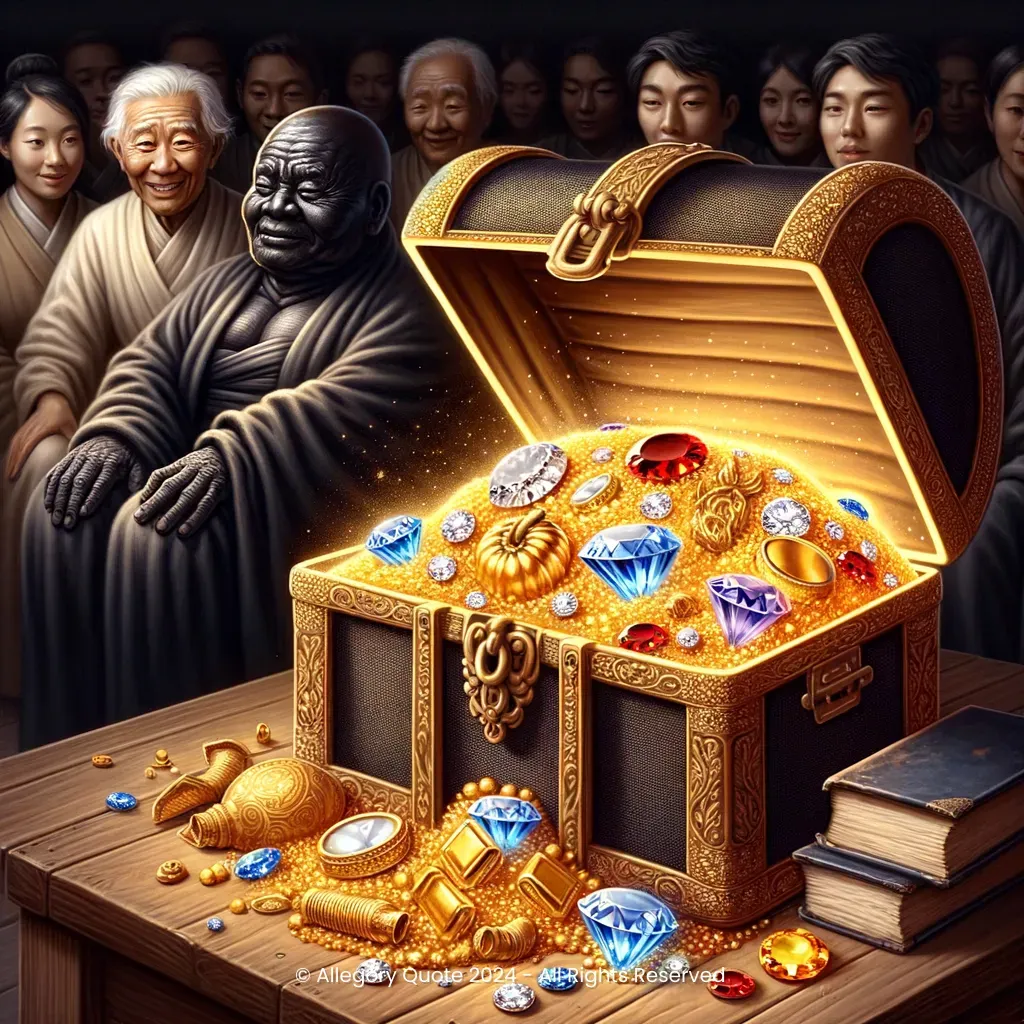All that glisters is not gold

0
0
0
0
- Meaning
- The proverb "All that glisters is not gold" means that not everything that looks valuable or worthwhile is genuinely so. It serves as a caution against making judgments based solely on appearances. The word "glisters," an archaic form of "glitters," emphasizes that shiny and attractive things do not always contain true value or worth.
- Allegory
- The designed image features a treasure chest overflowing with glittering items to represent the alluring facade of appearances. The tarnished objects symbolize hidden flaws, suggesting that not all that glitters holds true value. The wise figure observing the scene emblematically represents discernment and wisdom. Everyday objects like the worn book and the modest individual indicate that true value often lies beneath the surface, highlighting an understated yet profound inner worth, contrasting with the deceptive allure of superficial glitter.
- Applicability
- This phrase can be applied to many aspects of personal life. It reminds us to look beyond superficial appearances and not to be deceived by external beauty or charm. When making decisions, whether about people we trust, investments we consider, or opportunities we take, it's important to consider deeper attributes such as integrity, true character, and authentic worth.
- Impact
- The phrase has had a significant cultural impact and is often cited to encourage critical thinking and skepticism toward superficial appearances. It has been invoked in various literary works, discussions on values and ethics, and even modern-day advice columns, highlighting its enduring relevance. It also underlines a common motif in literature regarding the danger of deception and the importance of seeking true worth.
- Historical Context
- The phrase originates from Shakespeare's play "The Merchant of Venice," written around 1596–1599. The historical context of this period includes the flourishing of Renaissance literature and theater in England, where there was a keen interest in human nature, moral questions, and societal norms. The societal backdrop included significant commerce and maritime trade, making the themes of deception and true value particularly relevant.
- Criticisms
- While the phrase is broadly accepted, some criticisms may arise from its potential for overgeneralization. In a modern context, it could be seen as fostering cynicism or distrust toward people or things that appear attractive or valuable. Additionally, different cultures might have their own views on appearances versus reality, leading to varied interpretations.
- Variations
- Variations of this sentiment appear in different cultures. For example, in Japanese culture, the proverb "めっきは金とはならぬ" (Mekki wa kin to wa naranu) translates to "Plating does not become gold," conveying a similar message about the deceitfulness of appearances.
-

The golden age is before us, not behind us.
-

A little more than kin, and less than kind.
-

Frailty, thy name is woman!
-

What's in a name? That which we call a rose by any other name would smell as sweet.
-

The smallest worm will turn, being trodden on.
-

Lupus in fabula.
-

The course of true love never did run smooth.
-

Good night, good night! Parting is such sweet sorrow, that I shall say good night till it be morrow.
-

Beware the Ides of March.
-

Now is the winter of our discontent.
No Comments